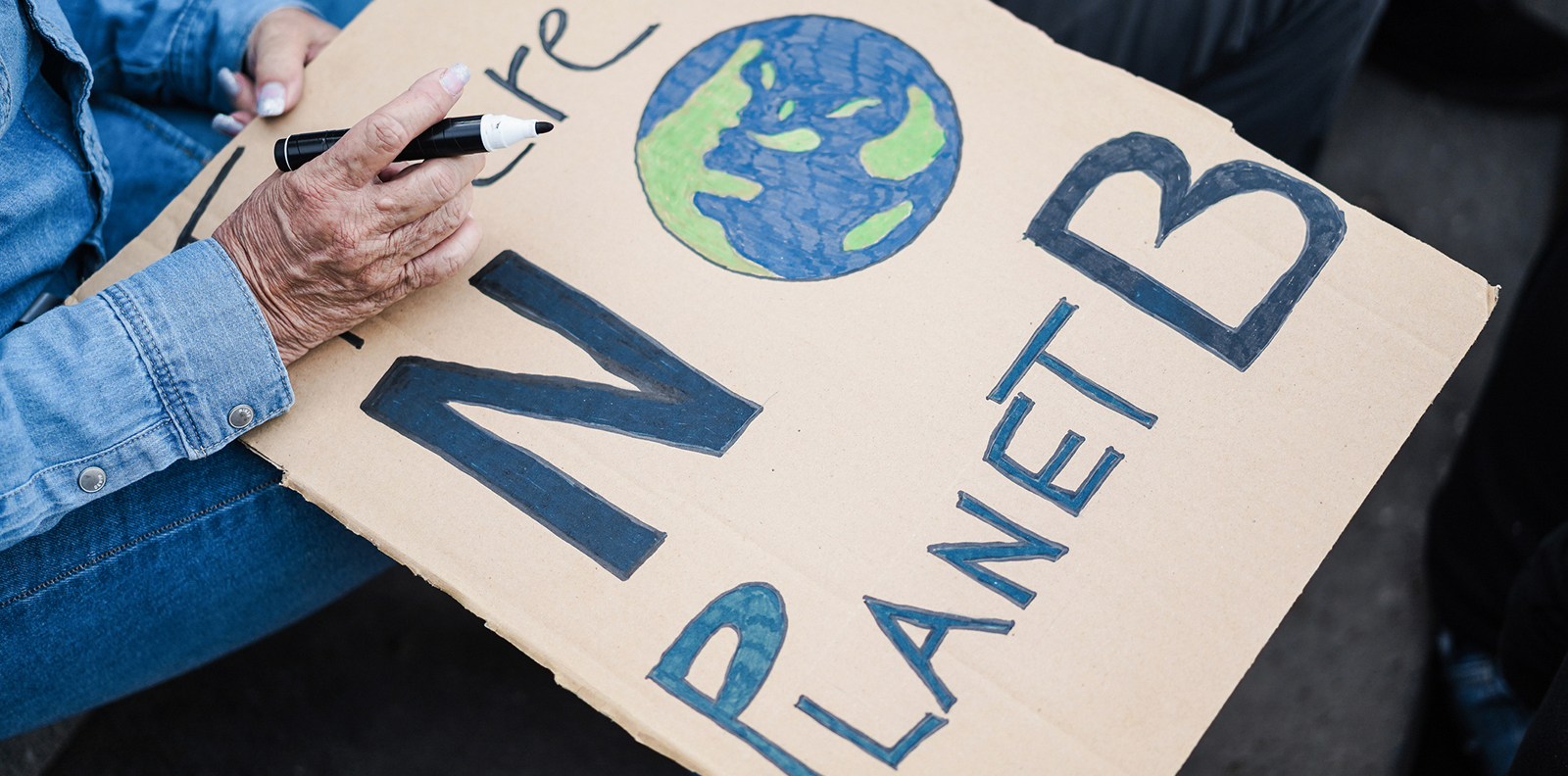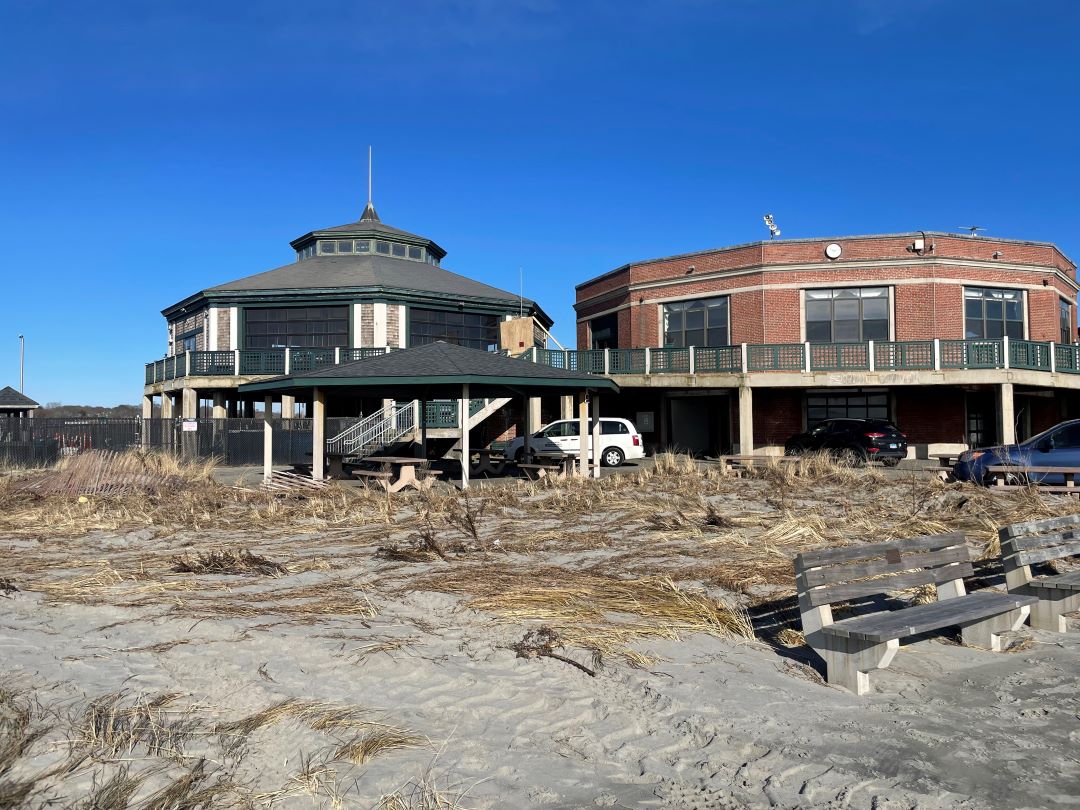Climate Crisis Takes Back Seat During Coronavirus Pandemic
March 30, 2020
There’s not a lot to cheer about for the environment in the federal response to the COVID-19 crisis.
The $2-plus trillion economic stimulus signed on March 27 didn’t include a lifeline to the climate crisis or the renewable-energy industry, which according to wind and solar industry groups, is at risk of losing up to 155,000 jobs, or about half of the sector’s workforce. Rhode Island has about 16,000 jobs in its so-called “clean economy” industry.
Republicans in Congress fought renewable-energy and environmental stimulus by characterizing it as a political ploy.
“Democrats won’t let us fund hospitals or save small businesses unless they get to dust off the Green New Deal,” Senate Majority Leader Mitch McConnell said. The Kentucky Republican, though, pushed, unsuccessfully, the creation of a $500 billion business relief program that would be controlled by the Department of the Treasury and have little oversight — although the Trump administration is now fighting that agreed-upon oversight.
A House plan was axed from the final stimulus package that would have required airlines to cut their emissions in exchange for $29 billion in aid.
Solar and wind trade organizations asked for, but didn’t receive, direct funds to help renewable-energy companies and their employees. Extensions of the Renewable Electricity Production Tax Credit and the Solar Investment Tax Credit weren’t granted. A request was also omitted from the massive aid plan that would have allowed a portion of the tax credits to be offered as direct payments to financial backers of renewable-energy projects, who, during a year with many expected losses, would have a greater interest in cash than tax credits.
Local solar installers are weathering the crisis as they report steady demand, while taking extra health precautions with customers. They are reporting a well-stocked supply chain and an increase in requests for home solar-battery storage systems.
The stimulus package provided no funding for the coal, oil, and gas industries, but pipeline and other fossil-fuel workers have been deemed essential and are staying on the job for infrastructure projects around the country, including the controversial natural-gas pipeline compressor station in Weymouth, Mass.
The coronavirus hasn’t curtailed a 30-day comment period for a controversial Environmental Protection Agency (EPA) proposal that limits the use of research in regulatory decisions. Basically, the Trump administration has fast-tracked a proposal to limit the use of human health science in environmental decision-making.
On March 26, the day before the stimulus package was approved, the EPA relaxed penalties against and enforcement of regulated polluters such as wastewater treatment facilities and generators of air pollution and hazardous waste.
Former EPA director Gina McCarthy, now the president of the Natural Resources Defense Council, said, “This is an open license to pollute. Plain and simple. The administration should be giving its all toward making our country healthier right now. Instead, it is taking advantage of an unprecedented public health crisis to do favors for polluters that threaten public health.”
Prevention, reporting, and clean up are still required under the EPA rule-easing for oil spills and the release of hazardous chemicals and waste. But violators can’t be punished if the violations are the result of COVID-19 restrictions.
Climate justice areas, such as those near the industrial port along Providence’s waterfront, are expected to endure added health and safety risks from reduced regulatory compliance.
A silver lining, however, of the public-health crisis is the reduction in air pollution and fossil-fuel use. Home confinement has sharply curtailed vehicle traffic and air travel. Between 50,000 and 75,000 people may have been saved from dying prematurely thanks to improved air quality, according to Marshall Burke, an assistant professor at Stanford University’s Department of Earth System Science.
Images taken during the first three weeks of March show less nitrogen dioxide — created from fossil-fuel use by cars, trucks, buses, power plants, and off-road equipment — over parts of the United States than the same time last year, according to a recent CNN story.
Elsewhere in the media, climate experts are making connections between the climate crisis and COVID-19 pandemic, showing a range of hope and fear over the struggle between economic growth and producing less to mitigate climate change.
In an opinion published in The Boston Globe, Craig Altemose, executive director of the climate activist group Better Future Project, argued that after the crisis subsides businesses should embrace telecommuting as a means of reducing emissions from the transportation sector, the largest source of greenhouse gases. He also suggested that consumers should scale back long-distance travel. He wrote that getting health-care aid to the most needy and developing countries would allow vulnerable populations to better manage the impacts of extreme heat and other climate impacts and would reduce the flow of climate refugees.
“There’s still much to learn from our response to the coronavirus,” Altemose wrote, “but we should aim to move forward on the other side of this pandemic with the right lessons rather than going back to flawed and failing systems.”
The public-health crisis and economic slowdown, however, hasn’t brought carbon emissions to a halt or reduced atmospheric concentrations, as the weekly atmospheric CO2 count at the Mauna Loa Observatory in Hawaii shows emissions at more than 415 parts per million.
“Any cuts in emissions as a result of the economic crisis triggered by COVID19 are not a substitute for concerted climate action,” according to the World Meteorological Organization.
Categories
Join the Discussion
View CommentsRecent Comments
Leave a Reply
Your support keeps our reporters on the environmental beat.
Reader support is at the core of our nonprofit news model. Together, we can keep the environment in the headlines.
We use cookies to improve your experience and deliver personalized content. View Cookie Settings




Climate change and the pandemic are at least partly related because deforestation is the reason for the pandemic. The actions needed to stop climate change will also help prevent future pandemics.